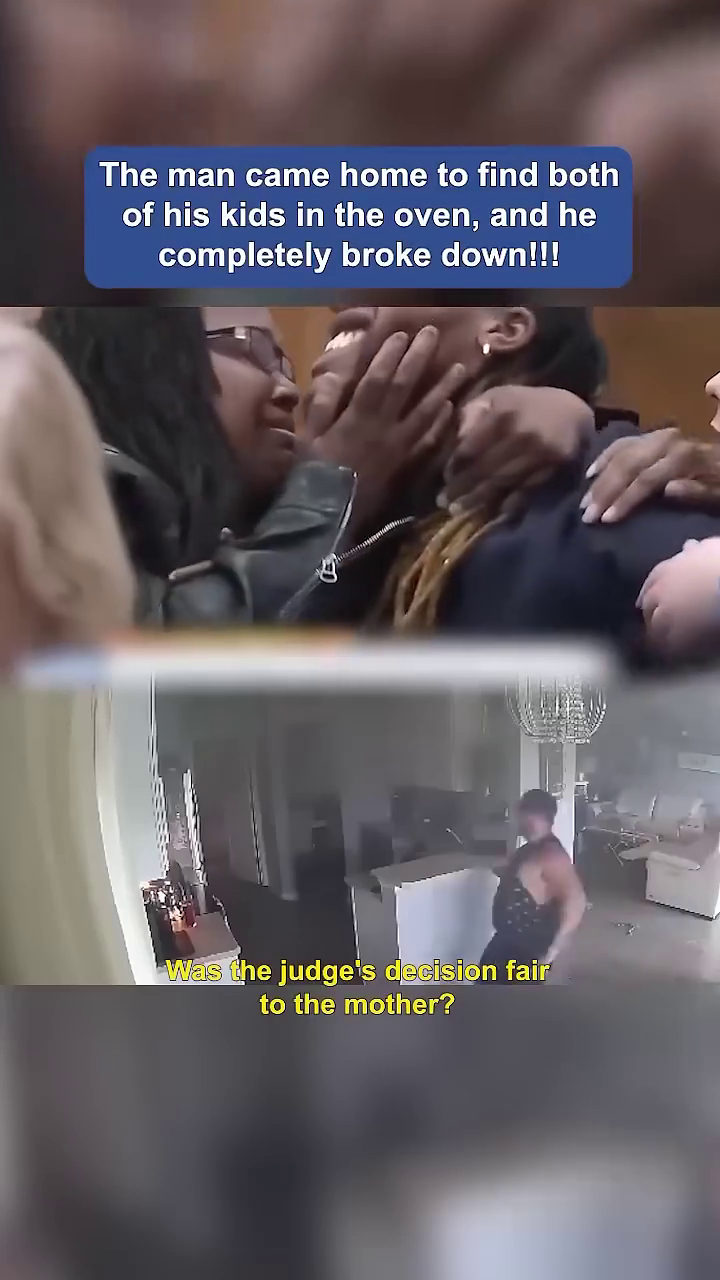The case of Lamora Williams is a profound tragedy that shook the Atlanta community and sparked a national conversation about child protection, parental mental health, and the legal system’s response to the most heinous crimes. In October 2017, the lives of a young family were irrevocably shattered, leading to a long and complex legal battle that culminated in a powerful verdict years later.
The incident centered on the dths of two beautiful little boys: one-year-old Ja’Karter Penn and his two-year-old brother, Ke’Yaunte Penn. Their mother, Lamora Williams, became the central figure in a crime that stunned investigators and the public alike, as the circumstances surrounding their loss were almost too horrific to comprehend.
The Discovery and the Father’s Agony
The sequence of events on that terrible day paints a devastating picture of a family tragedy unfolding. According to the prosecution and court documents, it was alleged that Lamora Williams placed her two youngest children inside the family’s oven and deliberately caused their fatal exposure to heat.
The heartbreaking discovery was made by the children’s father, Jameel Penn. There were reports that Williams either called or video-chatted Penn, showing him the lifeless bodies of their sons. In a frantic call to emergency services from his workplace, Penn desperately tried to report the scene he had witnessed on the video call, conveying the sheer terror and disbelief.
When first responders arrived at the residence, they were met with a scene of unimaginable horror. They found the bodies of the two toddlers, Ja’Karter and Ke’Yaunte, bearing the evidence of the traumatic event. Their three-year-old brother was also present in the home, miraculously unharmed but having been a witness to the profound tragedy. Williams herself called 911, claiming she had returned home to find the children d**d and an alleged caregiver gone. However, her shifting story and the evidence at the scene quickly turned the investigation toward her as the primary suspect.
The video of Jameel Penn’s courtroom breakdown—a raw, visceral display of grief and anguish—became a symbol of the immense pain caused by the loss. His reaction encapsulated the sheer, crushing weight of the tragedy, resonating deeply with everyone who followed the case.
Conflicting Narratives: The Suspect’s Statements
From the moment she was questioned, Lamora Williams’ account of what happened that night was inconsistent and confusing. In her initial call to 911, she tried to deflect blame, first mentioning an absent caregiver. As the investigation progressed, her stories changed. She attempted to blame family members, including her sister and her cousin, for the crime. These erratic and false statements were a key factor that led investigators to doubt her claims of innocence.
The prosecution successfully argued that Williams’ attempts to create a fictional narrative—the missing caregiver, the blame placed on family—were a desperate effort to conceal her own actions. The physical evidence, including the condition of the children’s bodies and the state of the oven, contradicted her claims and pointed directly to her involvement.
The Defense of Impairment and Mental Health
The defense strategy during the trial centered on a plea for understanding and leniency, focusing heavily on Lamora Williams’s mental state. Her attorneys and family members asserted that she was not of sound mind when the incident occurred, highlighting a history of mental and emotional struggles that dated back to her childhood.
Williams’ sister provided testimony about her lifelong challenges, claiming that her sister had suffered from severe emotional and behavioral problems since she was a child. Crucially, the defense introduced evidence suggesting that Williams was “cognitively impaired,” a condition confirmed by an evaluation conducted after the incident. They argued that these mental health issues, potentially exacerbated by the emotional strain of a recent breakup with the children’s father, led to a psychological “break” or that she “snapped,” making her incapable of fully understanding or controlling her terrible actions.
This defense raised critical questions about culpability and the intersection of severe mental health issues with criminal responsibility. Can a person with documented cognitive and emotional impairments be held fully accountable for a crime of this magnitude? The emotional testimonies from her family painted a picture of a woman who had been struggling for years, potentially without the necessary intervention or support from state agencies.
The Pursuit of Justice and the Verdict
The trial was a painful and meticulous process, requiring the jury to weigh the chilling evidence of the children’s dths against the compelling testimony about the mother’s mental health history. The prosecution maintained that regardless of her history, Williams acted with intent and full awareness of her actions, emphasizing the calculated steps she allegedly took and her subsequent attempts to cover up the crime.
Ultimately, the jury rejected the defense’s arguments of diminished capacity. They found Lamora Williams gilty on all 14 charges, which included two counts of mrdr, four counts of felony mrdr, and counts of aggravated assault and cruelty to children. The verdict was a strong affirmation of accountability for the loss of the two young boys.
In November 2024, Lamora Williams was formally sentenced. The judge delivered a life sentence without the possibility of parole, plus an additional 35 years. The sentence reflected the severity of the crime and the jury’s finding that she was criminally responsible for the intentional loss of her children.
A Call for Systemic Change
The Lamora Williams case has left a legacy far beyond the courtroom. It has fueled discussions about the state’s role in protecting vulnerable children when a parent is clearly struggling with mental illness. Williams’ family claimed they had previously sought assistance from the Division of Family and Children Services (DFCS), suggesting that the dths were preventable had the system not failed her and her children.
While the legal system ultimately held Williams accountable for her actions, the underlying tragedy underscores the urgent need for better mental health infrastructure and social services. Early intervention and robust support for parents with severe cognitive or psychological impairments are crucial to preventing such horrific outcomes. The memory of Ja’Karter and Ke’Yaunte Penn serves as a solemn reminder of the devastating consequences when those safeguards fail.
The final judgment in the case—life in prison—closed the chapter on the trial but did not end the grief for the father, Jameel Penn, or the extended family. The severity of the sentence reflects society’s unwavering demand for justice for the vctms of child abuse and mrdr, even in the complex shadow of mental illness.

